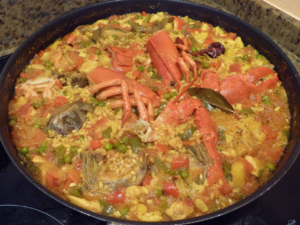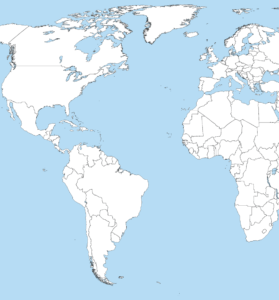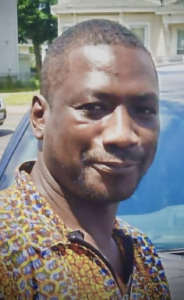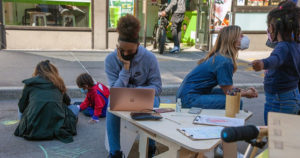 3 WAYS TO LISTEN
3 WAYS TO LISTEN
1. Listen to the full article here.
2. Right-click here and “save as” to save an mp3 of the article to your computer.
3. Listen to sections of the article by pressing the play buttons that appear before a set of words in the article below (coming soon).
Undocumented and Determined
Djamilah Lambert
BEFORE YOU READ:
Read the box below about TPS. Look up the list of countries. What do you know about what is happening in these countries?

As an undocumented immigrant, I face many challenges every day that documented people don’t understand. The hardest thing is waiting. I feel like my life is on hold while I try to get the documents I need to be here legally. It has been almost one year, and it seems like they keep adding more months to process my case. I tried to get a student visa so that I can go to college, but I did not get it. After that, my family opted for the Temporary Protected Status (TPS).
My parents decided that I should come to the U.S. for the security that unfortunately, my country cannot provide me. In Haiti, there is a lot of violence and kidnappings. People are living in fear. Our leaders do not focus on the real problems of the country: education insecurity, hunger, and unemployment, which is only increasing. The sacrifice that our ancestors made to give us freedom is tarnished.
The path to getting documents seems so long! And while I am waiting, I can’t fully participate in the opportunities that this country offers. I can’t get a job or go to college. I can’t even get my driver’s license.
It’s a terrible feeling—like I’m not really improving anything in my life. It is tiring. But somehow I find a way to make every day a better day by doing things that help me get closer to my goals. For example, I pray, I read, and I educate myself.
I don’t want to see only the bad side of waiting. Waiting teaches me patience. It gives me courage, strength, and determination. I have a great thirst to reach my goal to be a better version of myself. I can do that by learning every day, so one day I can help my family, my country, and other people. This is how I stay motivated.
Temporary Protected Status (TPS)
According to the American Immigration Council, TPS is a “temporary immigration status provided to nationals of specifically designated countries that are confronting an ongoing armed conflict, environmental disaster, or extraordinary and temporary conditions. Immigrants from which countries might receive TPS? Find a list here:
Source: https://www.americanimmigrationcouncil.org/research/temporary-protected-status-overview
AFTER YOU READ:
What does the author mean when she says, “The sacrifice that our ancestors made to give us freedom is tarnished.” Share what you know about Haitian history to make sense of that quote. If you’re not sure, look it up online.
Djamilah Lambert is a student at The Welcome Project in Somerville, MA. She is 20 years old and comes from Haiti. She is learning English and starting to take violin classes.




